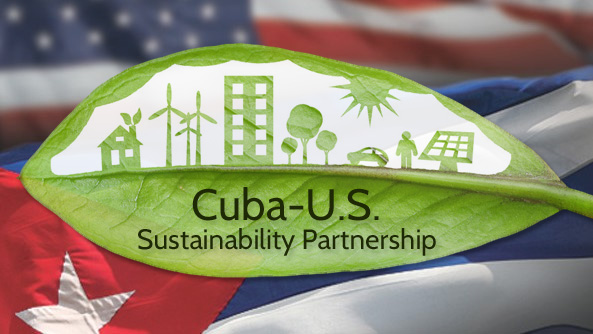
WASHINGTON, DC – Ocean Doctor, in partnership with the Center for International Policy and Robert Muse and Associates, has launched the Cuba-U.S. Sustainability Partnership (CUSP), to help ensure a sustainable future for Cuba in a post-embargo world.
The long-awaited historic December 17, 2014 announcements by Presidents Obama and Castro to normalize diplomatic relations heralds a new era of Cuba-U.S. relations. However, there are growing concerns about what normalized relations and an end to the economic embargo might mean for Cuba’s environment and culture.
“Ironically, the U.S. may become a greater threat to Cuba as its friend than it ever was as its enemy, as a flood of tourism and business development from the U.S. could undermine Cuba’s natural heritage and cultural identity,” states Ocean Doctor president Dr. David E. Guggenheim who has led research and conservation projects in Cuba for 15 years. Such a legacy has befallen many islands in the Caribbean over the past 50 years. A 2014 study states that half of the Caribbean’s coral cover has been lost since 1970 due primarily to human impacts.
Recognizing this unique moment in history as an opportunity to engage stakeholders, including private sector investors, corporations and NGOs, CUSP comprises entities that recognize that it is in their best business interests to contribute to creating a sustainable future for Cuba. CUSP members will commit to a set of agreed-upon guidelines for sustainable development that ensures the protection of Cuba´s environment, culture and communities.
Among its activities, CUSP will:
- Provide a rich source of expertise to educate the U.S. private sector about Cuba and its unique environmental, social and cultural heritage, needs and vulnerabilities.
- Develop and commit to a set of ethics, guiding principles and best practices for sustainable development in Cuba.
- Facilitate constructive engagement and information exchange between CUSP members and the Cuban community.
- Facilitate the collaborative development of innovative solutions and initiatives focused on balancing economic development and environmental and cultural conservation.
- Serve as a credible body to educate the public and inform conservation policy initiatives with governmental agencies in both the U.S. and Cuba.
CUSP’s initial focus is on the tourism industry, with emphasis on responsible, sustainable tourism and the use of environmental economics to assess sustainable alternatives to traditional Caribbean tourism development, e.g., ecotourism.
CUSP is also focused on the growing number of Cuban entrepreneurs as Cuba’s small-scale privatization continues to grow. In collaboration with their U.S. counterparts, CUSP members can exchange information on a broad range of sustainable business practices.
 Can Cuba maintain its cultural and natural heritage in the face of a “tsunami” of American tourists visiting the island as relations between the U.S. and Cuba normalize and the end of the economic embargo draws closer? Al Jazeera accompanied Ocean Doctor and Cross Cultural Journeys to Cuba in June 2015 to explore how Cuba went green and what the future holds. Interviewed in this segment: David E. Guggenheim, President, Ocean Doctor; Cecilia Utne, President, Cross Cultural Journeys; Miguel Coyula, Cuban Architect & Urban Planner. Video provided courtesy of Al Jazeera.
Can Cuba maintain its cultural and natural heritage in the face of a “tsunami” of American tourists visiting the island as relations between the U.S. and Cuba normalize and the end of the economic embargo draws closer? Al Jazeera accompanied Ocean Doctor and Cross Cultural Journeys to Cuba in June 2015 to explore how Cuba went green and what the future holds. Interviewed in this segment: David E. Guggenheim, President, Ocean Doctor; Cecilia Utne, President, Cross Cultural Journeys; Miguel Coyula, Cuban Architect & Urban Planner. Video provided courtesy of Al Jazeera.


